Heavy breathing is often associated with dogs because it helps them cool down. But have you ever noticed this unusual behavior in your feline friend while she is sleeping? If your little cat does so, it can be a sign of severe issues, from stress to heart disease, because heavy breathing isn’t usually seen in cats. Cats are masters in hiding their illness or disease, so as a cat owner, you should be attentive to notice symptoms of rapid or heavy breathing.
Here are some reasons that will help you know about all the things related to your cat’s heavy breathing. Read them below!
Panting in Cats
Sometimes pet owner takes panting in their cat as a normal condition. Still, it indicates severe health problems that you will need to seek veterinary care immediately!
If your cat is exhibiting or panting labored breathing, measure her condition with the criteria given below.
If you notice your cat is breathing out of the usual, or if her breathing continuously heavily for a longer time, then it’s time to see veterinary care before it gets too late!
What is the Normal Respiratory Rate in Cats?
Before figuring out the respiratory issue in a cat, you will need to first know about the healthy respiratory rate. The respiratory rate of a healthy cat is 16 to 40 breaths per minute when sleeping or resting calmly. Normal breathing involves slight chest movement; if the cat’s sides are moving a large amount, it means she is suffering from laboured breathing. Always be concerned about her abnormal breathing, which is she is having unusually fast, noisy, slow or difficult breathing.
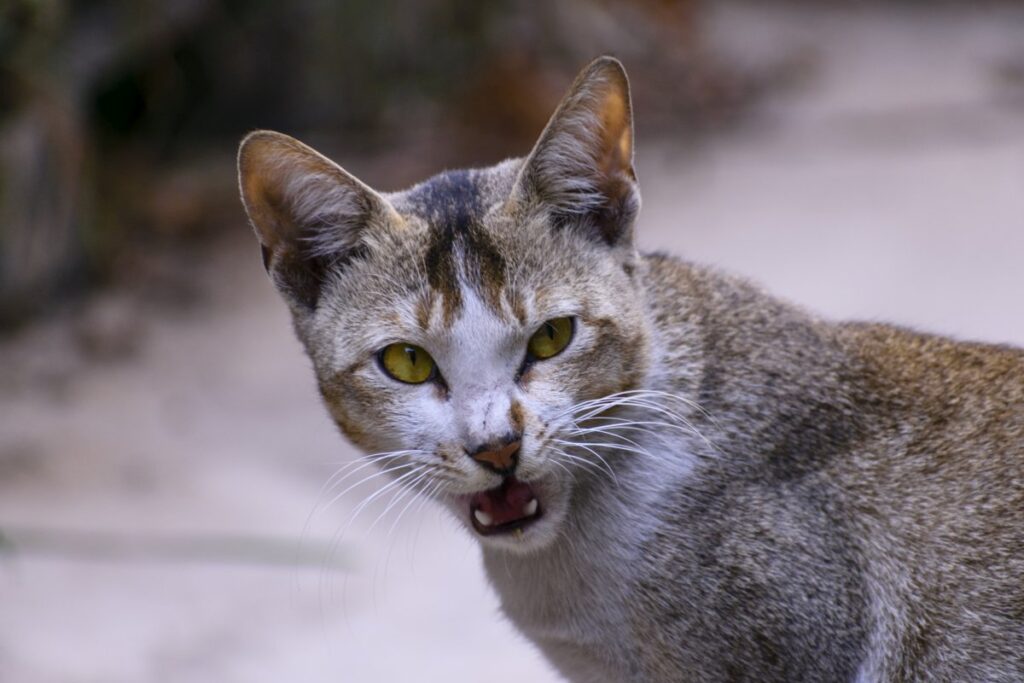
Count the number of your cat’s breaths while sleeping to measure her resting respiratory rate. One breath contains the chest rising (inhaling) and falling (exhaling) of your cat. Use a timer or your phone and count till 30 seconds how many breathes occur during this period. After that, multiply the counted breaths by two to get the total number of breaths in a minute.
What is Heavy Breathing in Cats?
Reduced oxygen or dysfunction of the respiratory system leads to heavy breathing in cats, a serious and life-threatening condition in feline animals. Many types of breathing disorders can affect cats, and in this article, we will focus on the reasons that cause abnormal breathing in cats. While measuring your cat’s respiratory rate, if normal breathing is higher than usual by 16 to 40 breaths per minute, then the breathing will be considered as rapid or heavy breathing in cats. A stressed, active or hot cat may have rapid breathing, but this condition decreases after a few minutes. If the breathing worsens then, it indicates a serious issue that needs to be addressed by a vet immediately.
Causes of Abnormal Breathing in Cats
If your cat isn’t tired, stressed or warm from exercise, then labored breathing may be a sign of a severe medical problem. In this case, emergency veterinary care may be needed.
Asthma
Asthma is one of the significant reasons for cats’ heavy breathing, wheezing, panting and coughing, increasing the cat’s respiratory rate. However, don’t worry; asthma can be treated in cats by medications called bronchodilators or corticosteroids.
Heartworm
Another reason behind the cat’s breathing difficulties could be heartworm. Heartworm is cats can be treated by supportive care with medication to lessen inflammation and oxygen therapy in more severe cases. Because heartworm can cause death, therefore, it is essential to keep your feline friend on monthly heartworm preventative.
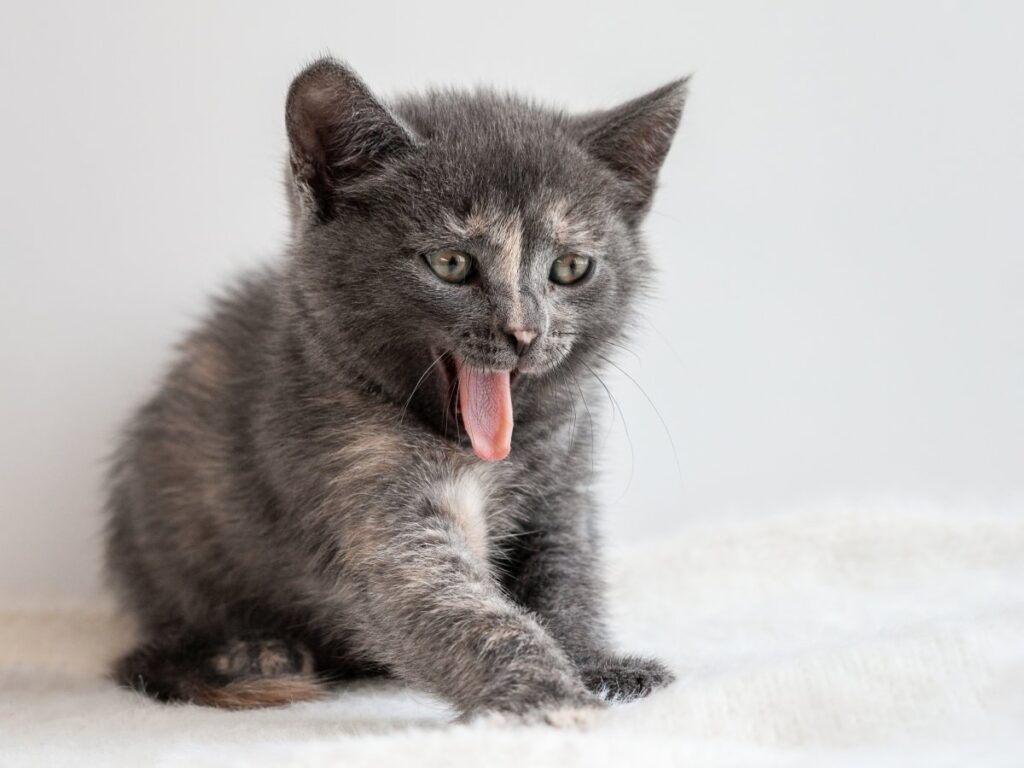
Congestive Heart Failure
When fluid builds up in or around a cat’s lungs, it leads to rapid, deep, panting and coughing conditions. It can be treated with medication to drain or dilate blood vessels to remove the additional fluid and make the heart contract more vehemently.
Respiratory Infections
Respiratory infections such as bacterial infections make it difficult for cats to breathe, often resulting in heavy breathing. Antibiotics may be required for the treatment of such infections. Steam and humidifiers can also help reduce mucus and make nasal breathing in cats easier as she recovers.
Other Reasons
Other reasons for heavy breathing or panting in cats include anaemia, trauma, abdominal enlargement, neurologic disorder and pain.
- Learn more about common cat diseases and infections
Diagnosis of Fast Breathing in Cats
Your veterinarian will assess the severity and stage of the heavy breathing of your cat. The vet will examine your cat by listening to her chest, checking her heart murmur, fluid in the lungs, the color of the cat’s eyes or other causes to identify whether the organs are receiving enough oxygen as they should or not.
Your little feline companion will be provided with a supply of oxygen. A vet will perform a blood test to check for any underlying diseases or illnesses, then ultrasounds or x-rays will be done to inspect the lungs and heart.
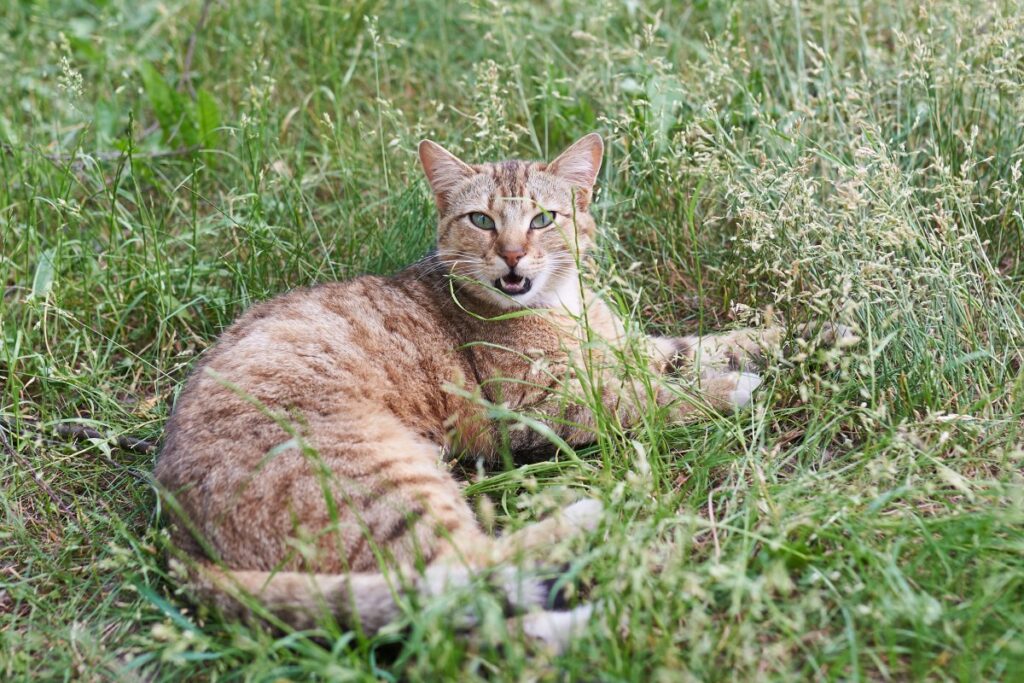
Treatment of Fast Breathing in Cats
An IV catheter will be placed to administer emergency drugs and fluids intravenously with an oxygen supply.
Your cat’s treatment will depend on one of the above causes she is experiencing. Fluid will be analyzed and removed from the chest for water in the lungs. An echocardiogram of the heart will be taken if heart disease is a problem. The tests will report the size and function of the cat’s heart.
If your cat is suffering from respiratory distress, then your vet will more likely give you tips on transportation to remove the traveling stress from your cat.
If you notice your cat breathing rapidly, it can be an emergency case. Take your cat to the vet just after noticing the first sign of rapid breathing.
If the heavy breathing stops after a few times, start recording the breath duration details. Share the details with your vet about before and after happenings of the breath. These keen observations about your cat’s breathing help narrow down potential and define causes.
So, in most cases, heavy or rapid breathing is a symptom of many underlying health problems. If the problem is prolonged and accompanied by other indications of heavy breathing or distress, then it would be best to take your cat to the veterinarian.

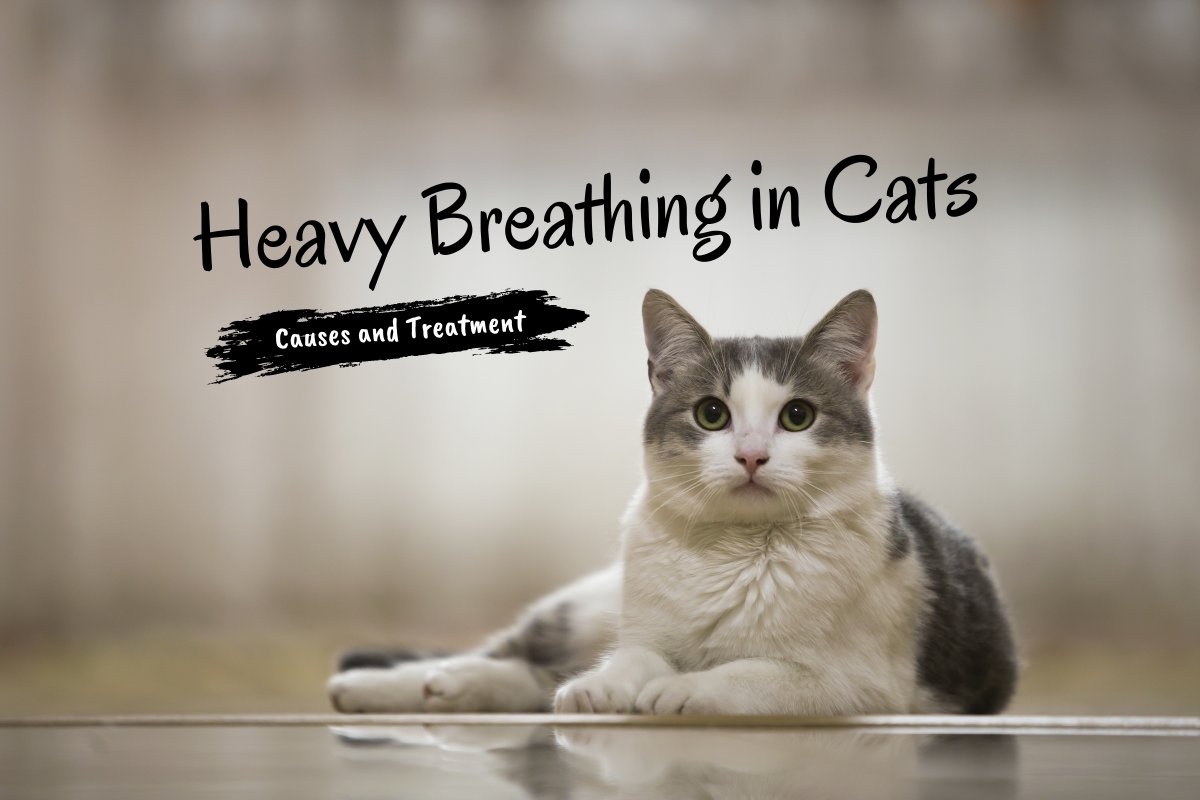
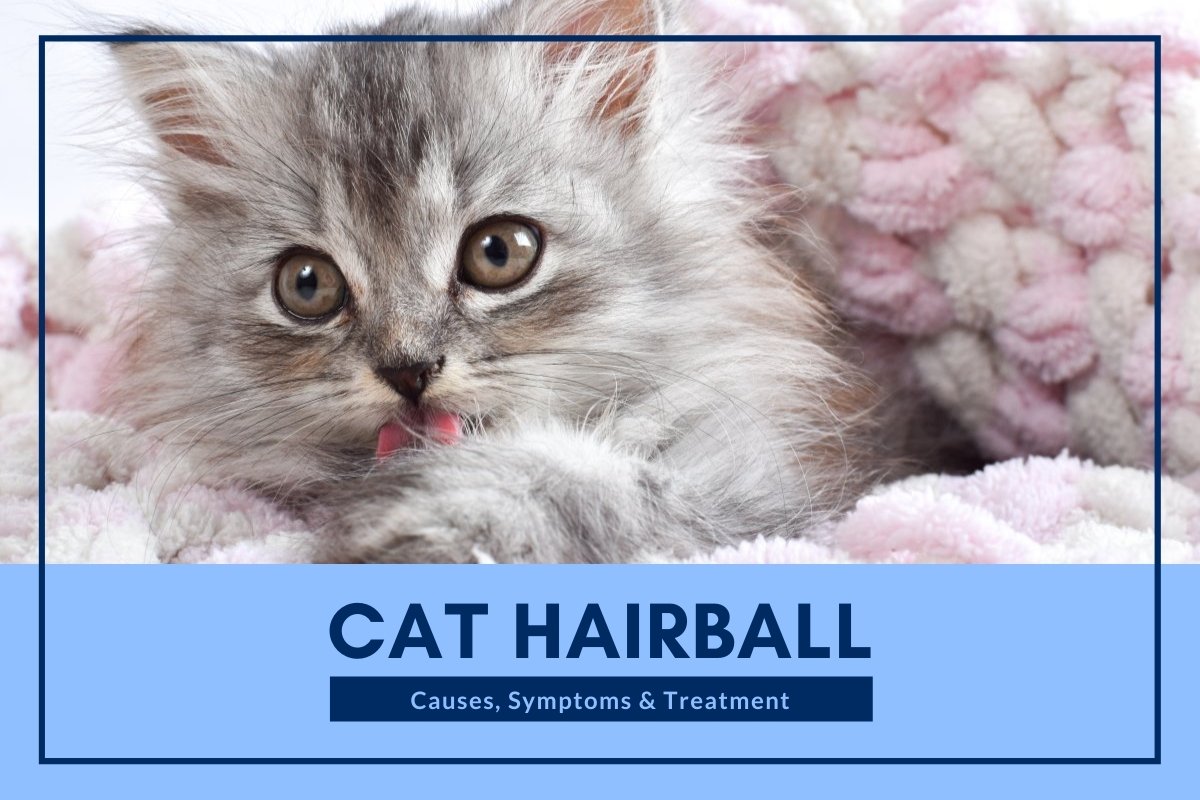
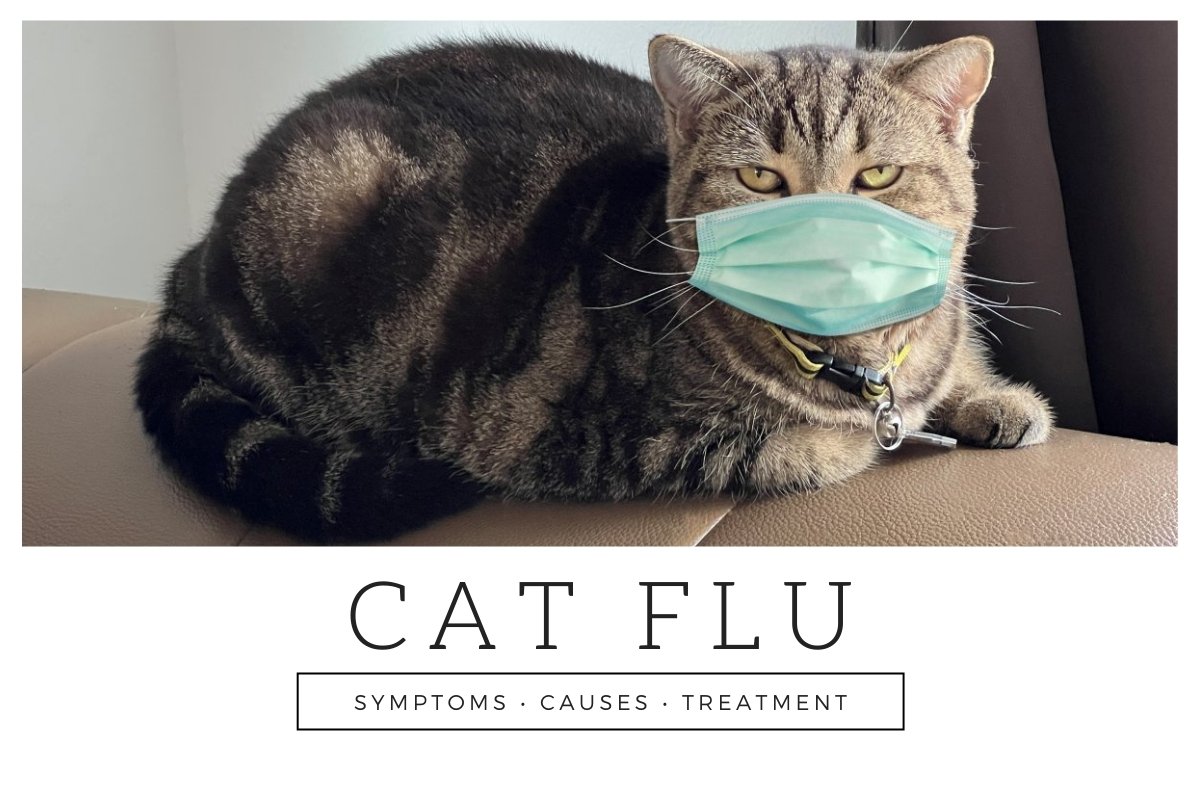
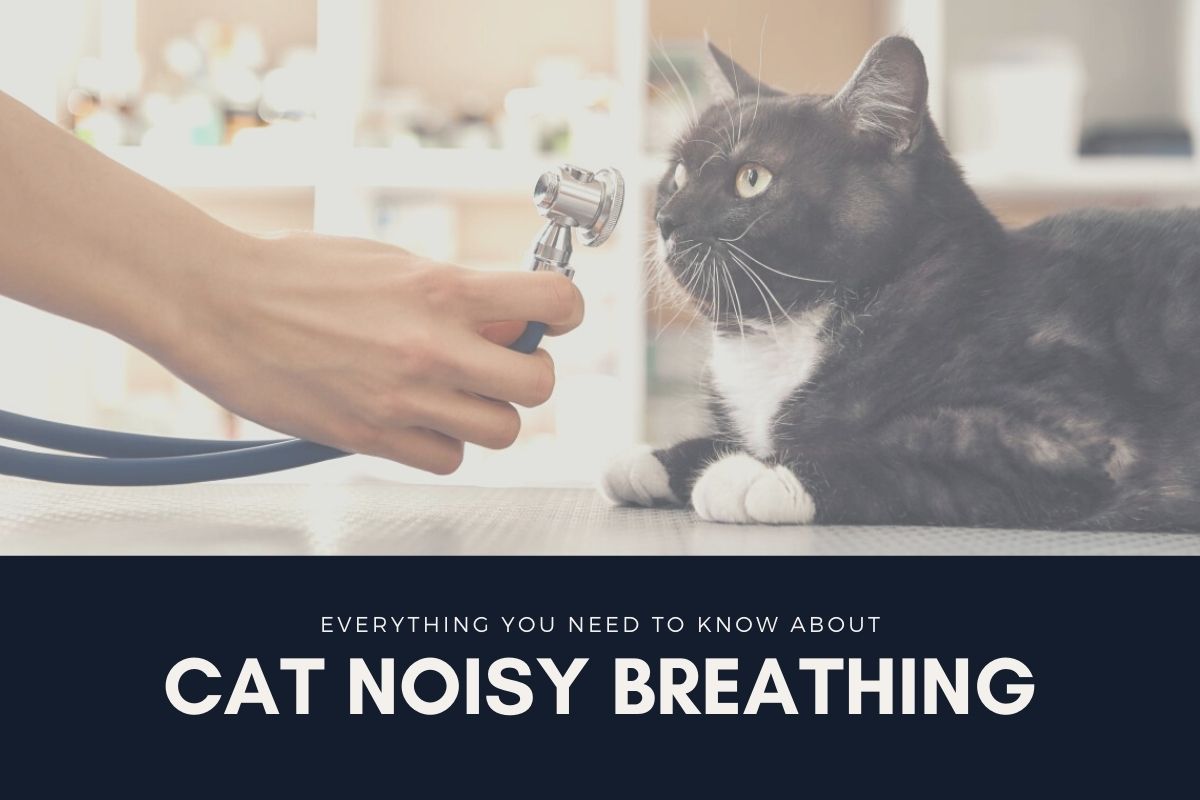
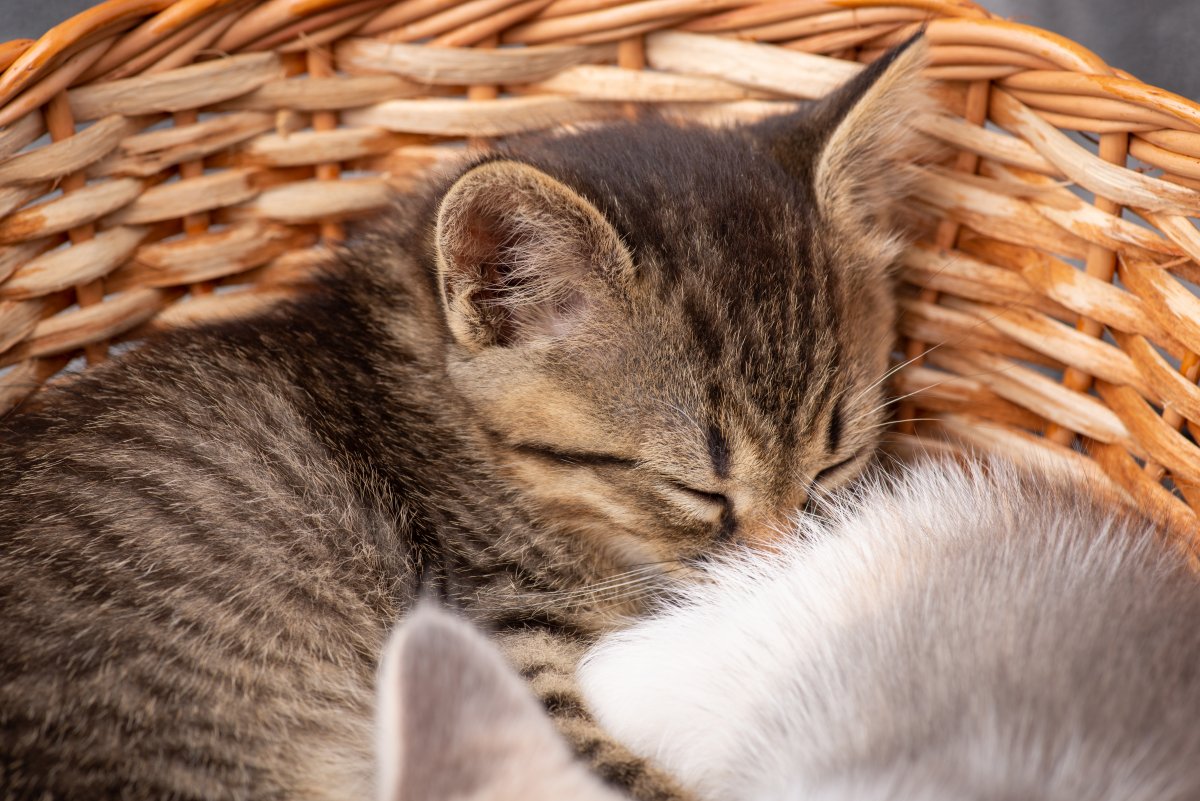
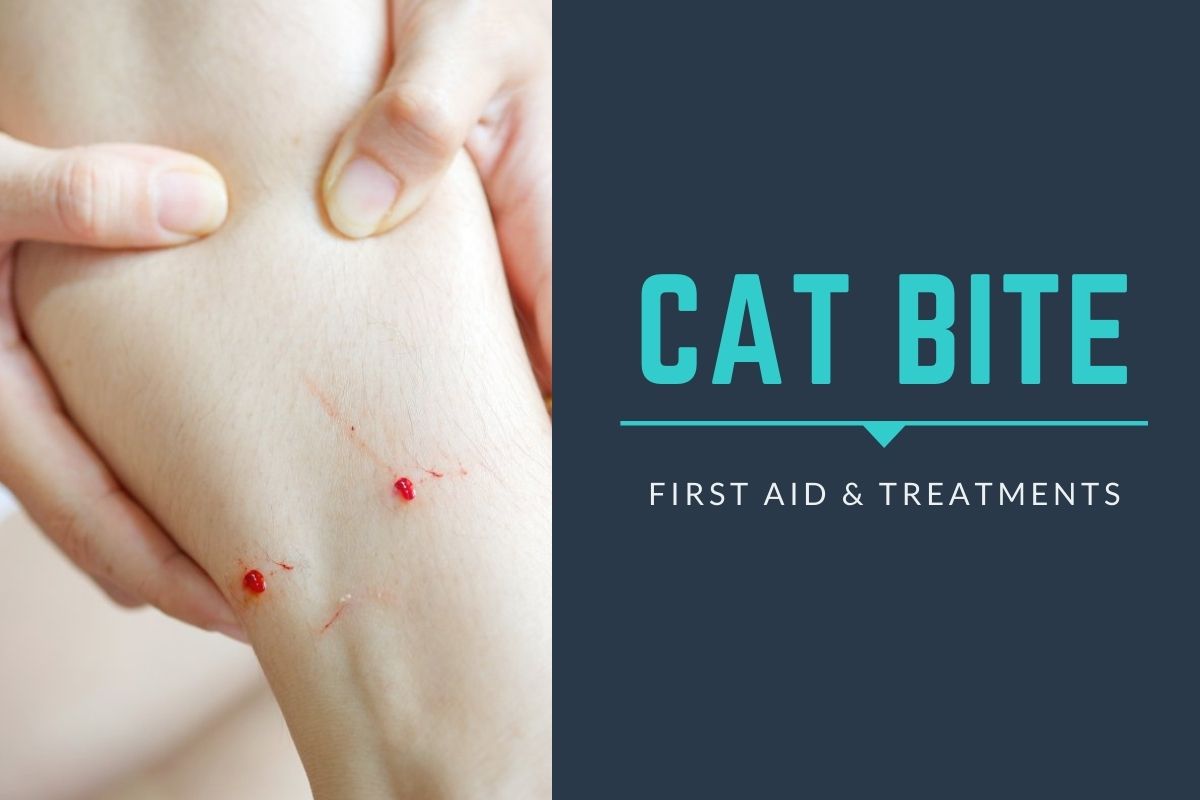
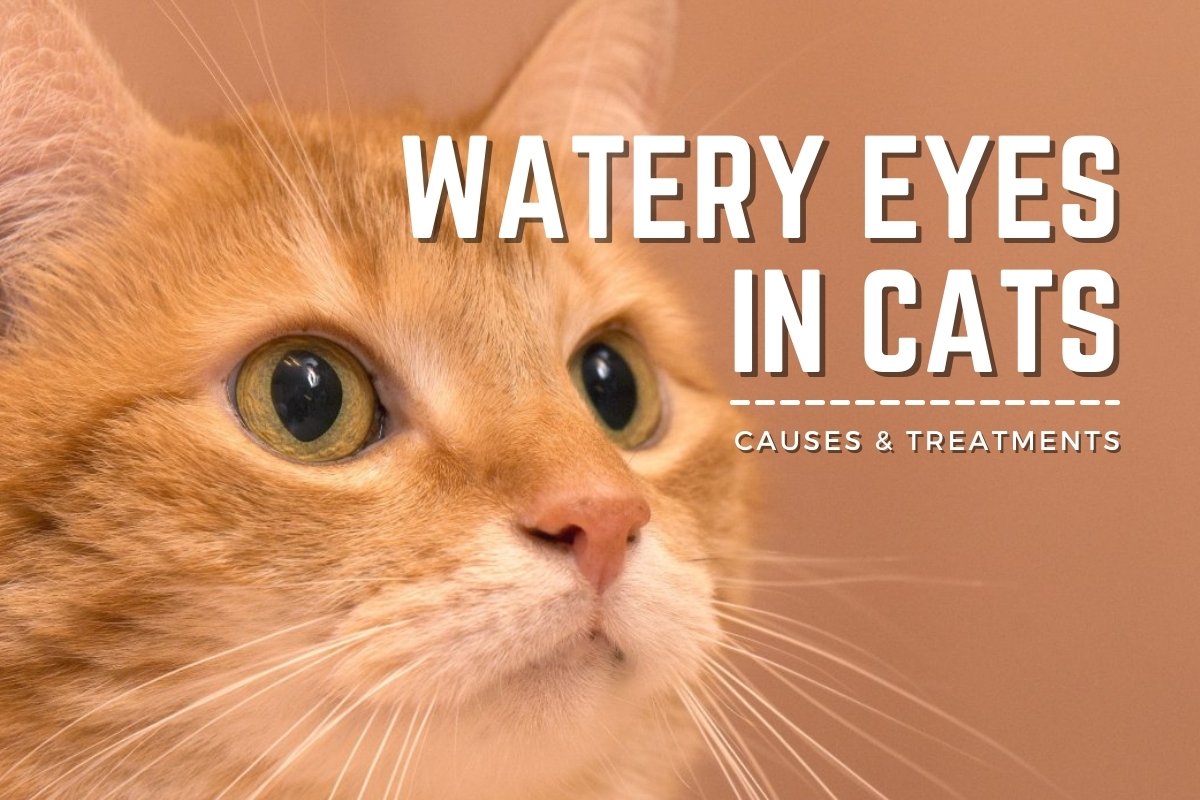
1 comment